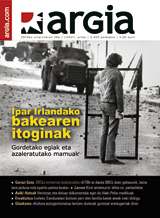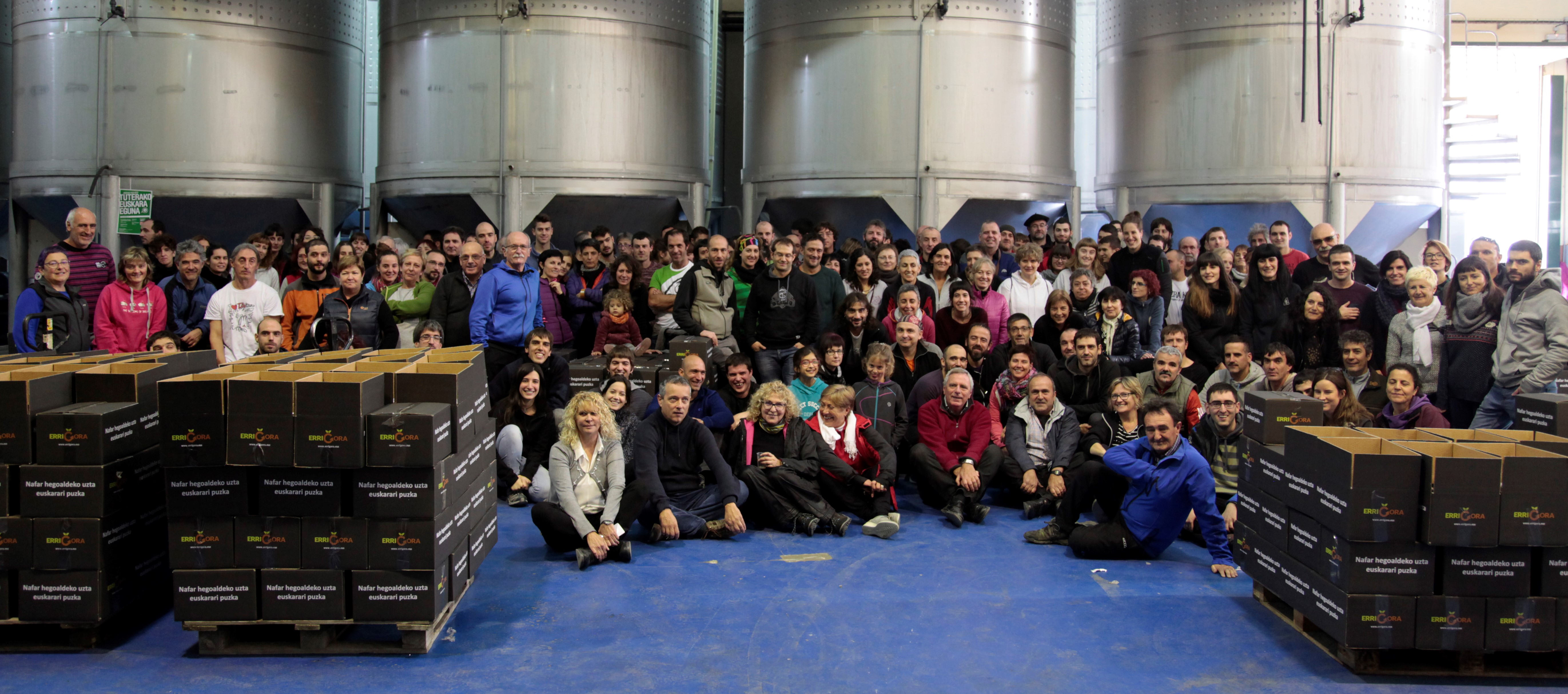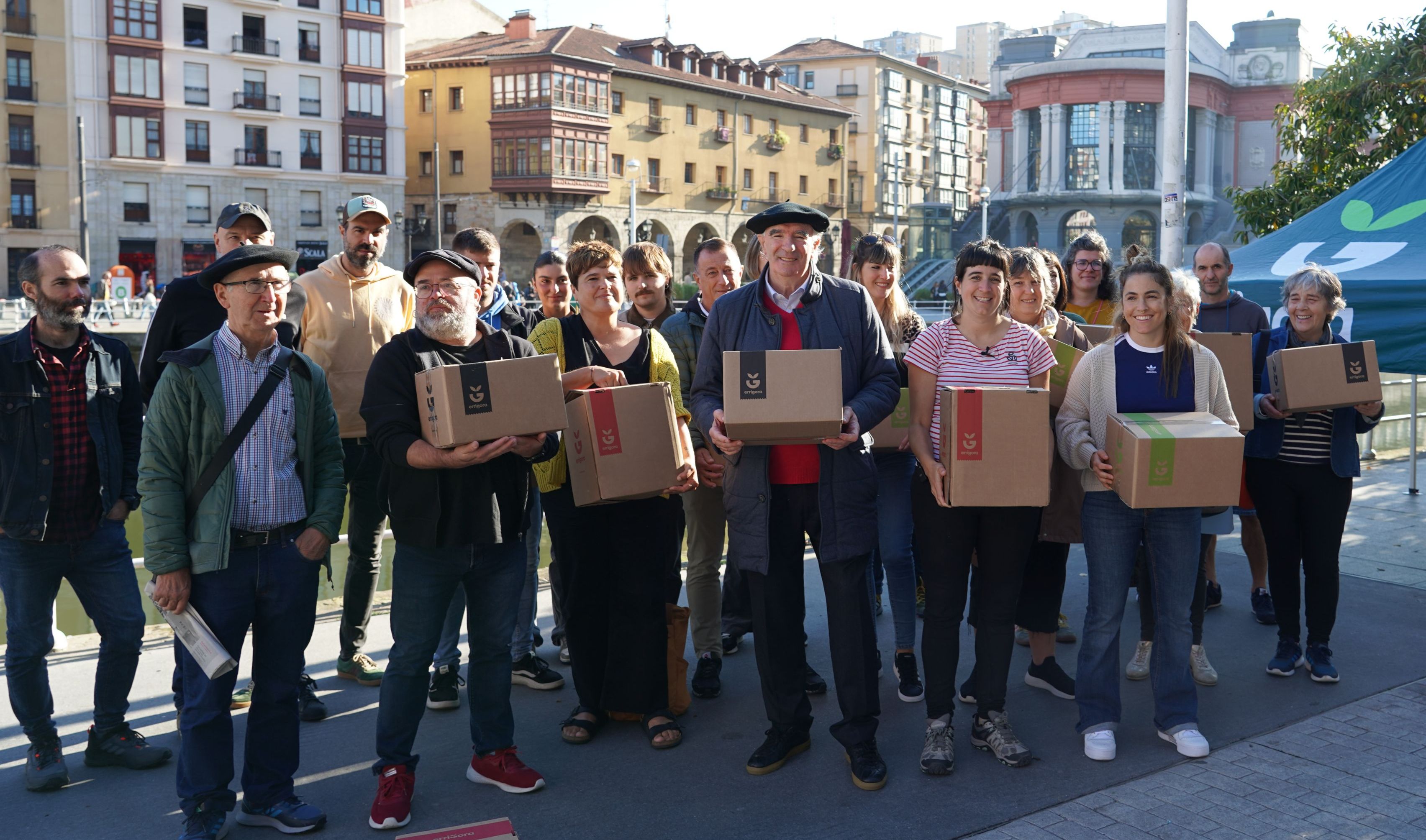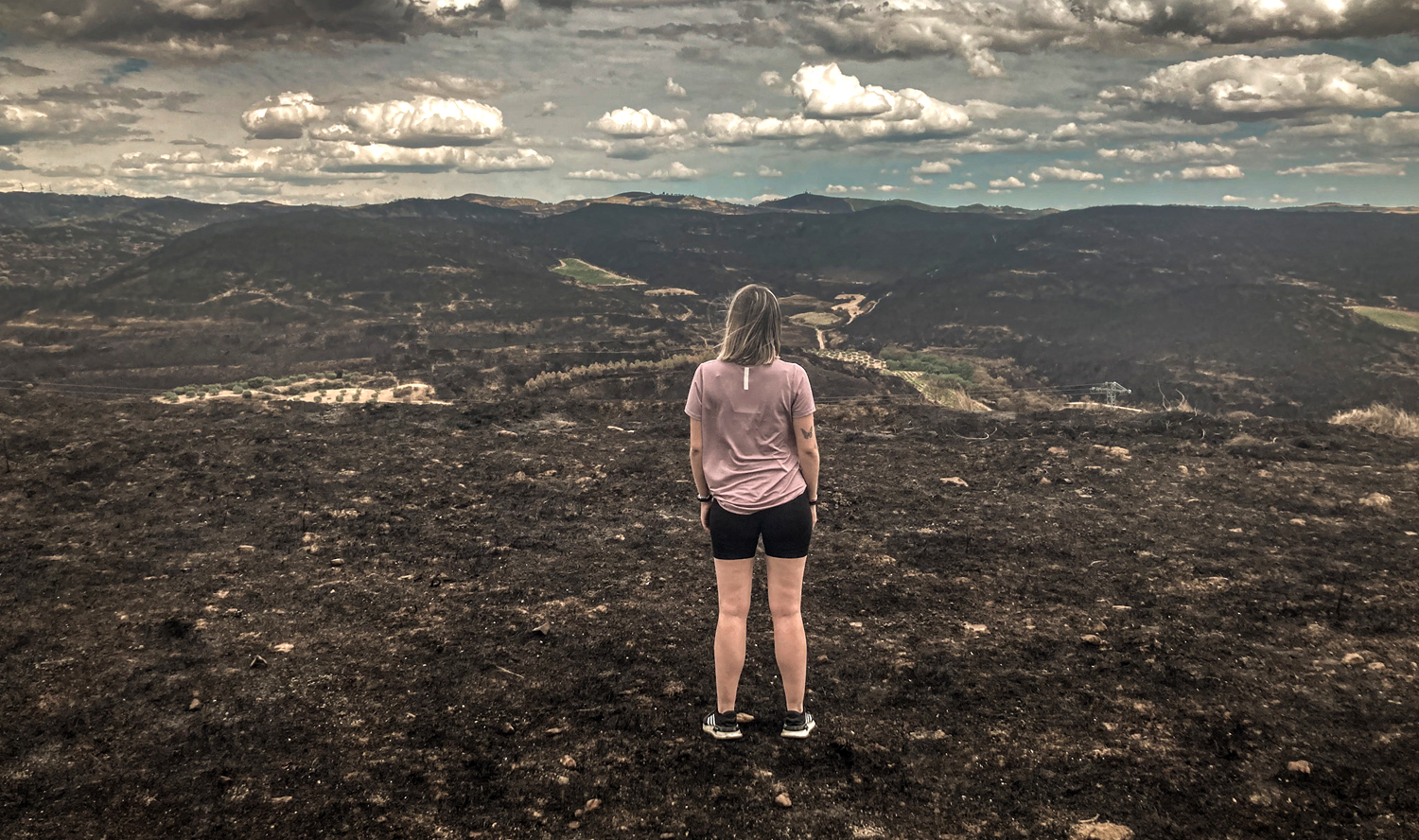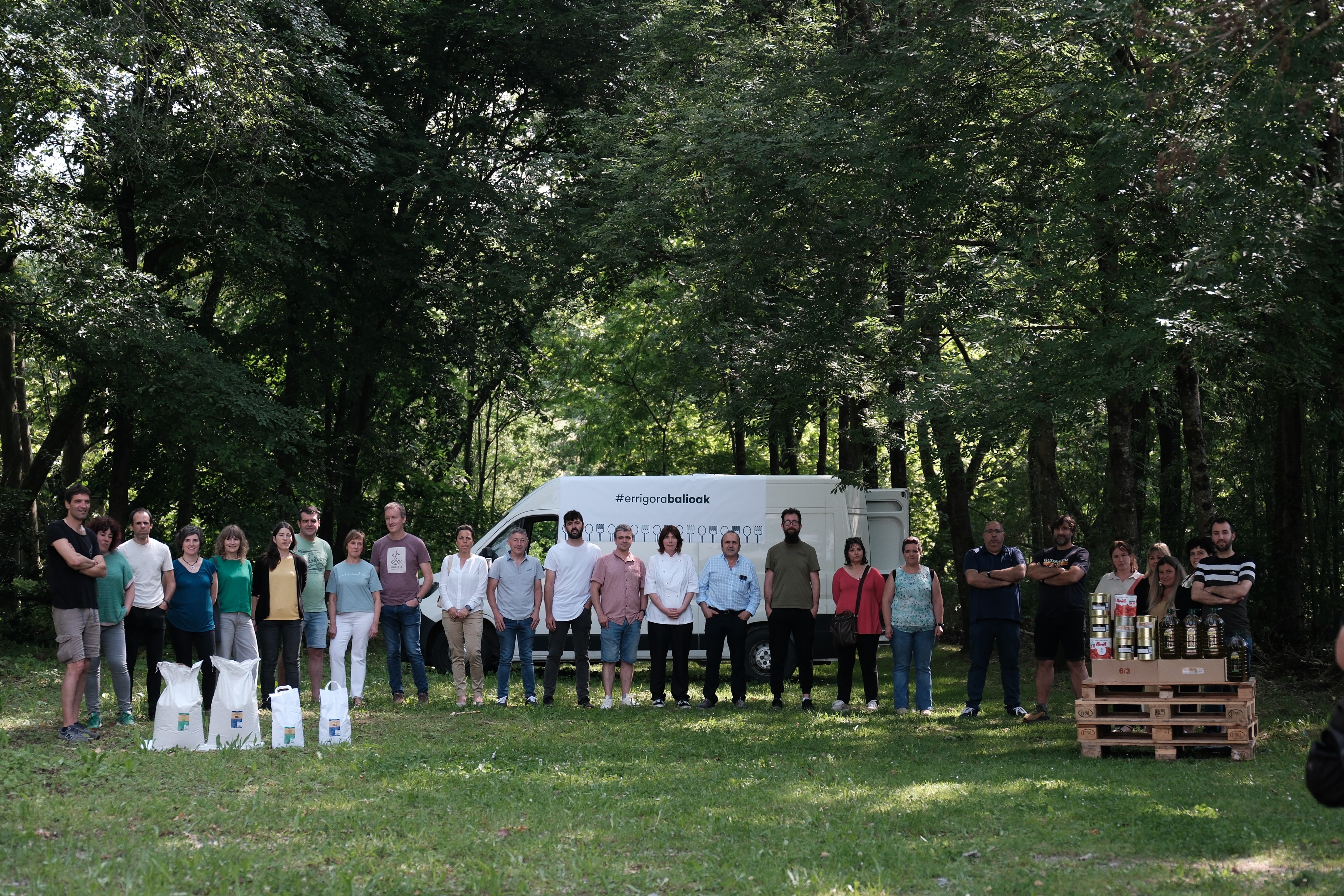Reliving the North
- The loss of farmland, the peoples who have lost their lives and identity, the inability to live there with the money they earned from work… Land speculation, the situation of citizens, especially young people, is difficult in Iparralde. The idea of Land and Collective Housing emerged to denounce this fact.

The group that emerged in 2007 has inherited the struggle to respond to the problem of land, which began 40 years ago os.Euskal Herria is not for sale: we defend the land, we are a group of young workers who work on self-training, self-management and auzolan,” says Xabier Tubal Abrisketa. The fact that the majority is young is right: after all, it is the people who find it most difficult in their territory to get work and live, and also the people who are most eager to fight.
The overall objective is to bring together and create in the long term a single group of actors with socio-economic groups that have the necessary strength to change this situation, “proposing real solutions to problems,” according to Abrisketa. To do so, two groups are distinguished in the organization: one responsible for organizing and carrying out the denunciation actions, and another responsible for reflecting and contacting the agents. “We hold long meetings in which we hold in-depth discussions, because self-training is the solid foundation of the collective. To address this problem, we first need to know how and why it arose,” explains Iker Goihenetxe, a member of the collective.
“The coast is no longer for its inhabitants”
Those are the words of a housing agency in Baiona. “The French State has seen that the construction of luxury homes for foreigners is a better investment and, as a result, it is estimated that there are currently 50,000 empty houses and second homes in Iparralde,” explains Abrisketa. Forecasts also indicate that an additional 45,000 homes will be built by 2020. “In the planning of the French State, the North is an industrial centre and the South is an area for a cozy retirement”.
Faced with the rise of the services sector, the Basque Country is losing weight. “That means that the food we produce is not eaten by us, and what we consume is brought from outside.” Most of the jobs generated in the services are on the coast, so the young people of the interior have no choice but to turn to them. As a result, villages are vacated and houses are purchased by rich outsiders, becoming a “sleeping village”. In short, they lose their lives and their identity.
Complaint to the Municipal Police
The group takes advantage of the summer season to organize a series of acts of denunciation, in which there are more people and, above all, more foreigners. “Among other things, we opened a house that had been empty for some time and one day we visited the outsiders,” says Goihenetxe. “In San Juan de Luz we occupy a high-level agency and close another fourteen. Again, we wanted to talk to a family that has a second home. Above all, we are responsible for explaining what the problem is.”
To hinder the rise in the price of the Earth and to raise the awareness of foreigners to invest in the local economy: these are the two main axes of the collective Tierra y Vivienda.









